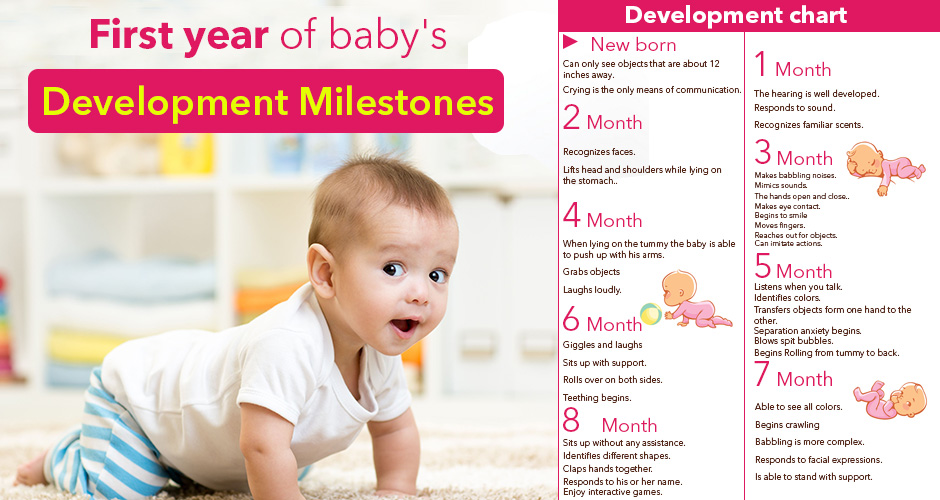 Source: bing.com
Source: bing.comTable of Contents
Welcome to Month 5!
Congratulations on making it to the fifth month of your baby’s life! It’s amazing to see how much your little one has grown and developed in such a short amount of time. At this stage, your baby is becoming more social, active and curious about the world around them.
Physical Development
By now, your baby has likely doubled their birth weight and grown a few inches taller since their last check-up. Their movements are more controlled, and they may be able to sit with support, roll over, and even bear some weight on their legs. Tummy time is important at this stage to help strengthen their neck and upper body muscles, which will eventually help them crawl and walk.
Cognitive Development
Your baby is becoming more aware of their surroundings and may even start to recognize familiar faces and voices. They may also start to understand cause and effect, such as shaking a rattle to make noise. Talking and singing to your baby is essential for their language development, and they may start to babble and make sounds in response. Encouraging sensory play with soft toys, textured fabrics and brightly coloured objects can help stimulate their cognitive development.
Behavioural Development
At this stage, your baby is becoming more social and interactive with you and the people around them. They may smile more, laugh, and even try to imitate facial expressions. Separation anxiety may also start to kick in, as your baby becomes more attached to you and may become upset when you leave their sight. Establishing a consistent routine can help ease this transition and make your baby feel more secure.
Feeding and Sleeping
Breastmilk or formula should still be the main source of nutrition for your baby at this stage, but you can start introducing solid foods around 6 months of age. Nursing or bottle-feeding should still be done on demand, and your baby may start to sleep for longer stretches at night. Daytime naps are important for their growth and development, and establishing a consistent bedtime routine can help them get the rest they need.
Conclusion
Watching your 5-month old grow and develop is a wonderful experience. As they become more active, social, and aware of their surroundings, it’s important to provide them with plenty of opportunities to explore and learn. Stay patient and enjoy these precious moments with your little one – they grow up so fast!
Frequently Asked Questions
When should I start introducing solid foods?
It’s recommended to start introducing solid foods around 6 months of age, when your baby is showing signs of readiness such as sitting up with support and showing interest in food.
How much should my 5-month old be eating?
Breastmilk or formula should still be the main source of nutrition for your baby, but they may start to eat 1-2 tablespoons of pureed or mashed foods per feeding.
What can I do to help my baby sleep through the night?
Establish a consistent bedtime routine, avoid over-stimulating your baby before bedtime, and respond to their needs in a calm and soothing manner. Remember that every baby is different and may have different sleep patterns.
How can I help my baby with separation anxiety?
Establishing a consistent routine and providing lots of love and reassurance can help ease separation anxiety. Gradually increasing the length of time you’re apart from your baby can also help them become more comfortable with being away from you.
When should I be concerned about my baby’s development?
If you notice your baby isn’t meeting certain milestones, such as rolling over or sitting up with support, or if they seem excessively irritable or lethargic, it’s important to speak to your pediatrician. They can help determine if there’s an underlying issue that needs to be addressed.
